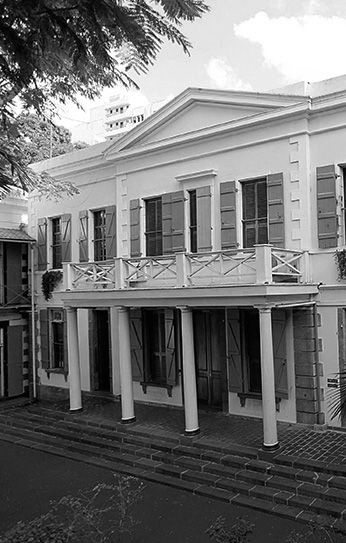

Commentators who wish to use one word to describe the Mauritius Legal System are wont to call it hybrid. That is because, before our island was taken over by the British in 1810 and retrieved the name Mauritius, which had been given to it by the Dutch in earlier days, Mauritius was a French colony called “Isle de France” for just under a century. A few laws had been promulgated during that period and, in the Act of Capitulation signed by the commander of the French forces, he generously agreed to insert an Article 8 which said “Les habitants de l’Isle de France pourront conserver leurs loix, coutumes et religion”. Most of those laws dealt with criminal law and procedure, which is why, when the five Napoleonic Codes were enacted in France at the beginning of the nineteenth century, only the Code Civil, the Code de Commerce and the Code de Procédure Civile were extended to the French colony. Most of the laws enacted in Mauritius between 1810 and 1840 were set out in two columns, one in French and one in English, the most noteworthy being the Penal Code Ordinance of 1838, which is now our Criminal Code. The British occupiers contended that the word “loix” in the Act of Capitulation referred to substantive law, so that they felt free to legislate for their colony along English lines in matters of civil and criminal procedure, including the law of evidence, except that the provisions of the Code Civil relating to the limitations on oral testimony (arts 1341 et seq.) were retained. Later in the nineteenth century, the Mauritian legislature, which used to be the Council of Government (later to become the Legislative Assembly and finally the National Assembly), enacted a number of laws in the commercial field, for example the Bankruptcy law and the Company law, by copying the corresponding English statutes. Thereafter, and until this day, our laws have followed the English pattern and, except for the four Codes referred to above, they are subject to the terms of what used to be the Interpretation and Common Form Ordinance, and what is now the Interpretation and General Clauses Act.
Victor GLOVER Kt.,G.O.S.K.
Former Chief Justice of Mauritius

Code de Procedure Civile
Data Protection Act
District and Intermediate Courts (Civil)